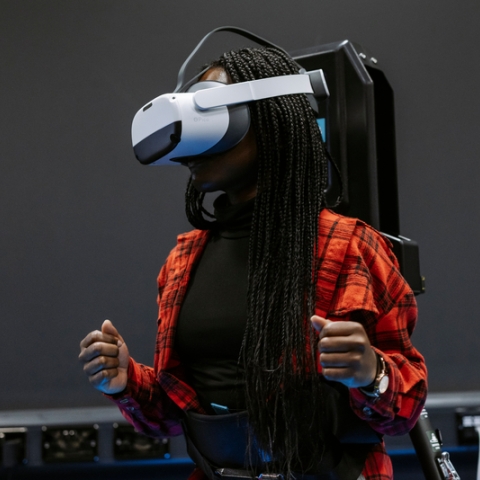A Global Challenges Research Fund (GCRF) Supported Project on "Managerial Capture of Human Resource Development (HRD): A Legitimisation Strategy of Petroleum Sector Employers in Nigeria."
As a field of study, Human Resource Development (HRD) has continued to undergo enrichment process since inception (few decades ago) covering multiple dimensions including training and development, educational attainment, workforce skills and population health among other arrays of employment policies which can help facilitate organisations with workforce and set of appropriate skills/competencies that are requisite in quickly dealing with and adapting to new work challenges.
In continuing this enrichment process, this current project considers the interface of managerial capture: a fundamental of managerialism which can disable or make HRD hard to progress as well as the legitimisation strategies used by employers to normalise managerial capture of HRD – particularly in developing economies - such as Nigerian employment terrain that is non-participatory and increasingly embroiled in corporate-stakeholder (employees) conflict and employees’ under-development.
The project involves interviewing stakeholders- whose opinions matter in the project. Stakeholders in the petroleum, banking and ICTs sectors will be interviewed on this project, in order to determine the legitimisation strategies employers use to managerially capture and legitimise HRD capture in Nigeria?
The project is anticipated to make both theoretical contributions to learning/literature as well as a practical contribution to the Nigerian society and beyond.
In academic context, the project aims to theorise retrogressive/regressive human resource development (HRD) (Prasad, 1967) using the interface of managerial capture (Pollit, 1990) and to identify the various legitimisation strategies used by employers to justify/normalise/legitimise/rationalise this (unnoticed) process of disabling (or capturing) HRD. According to Leeuwen (1995), these strategies are four, which include: authorisation, moralisation, mythopoesis and rationalisation, however, in this project, the fifth strategy – managerialism was incorporated to help achieve the aim of the project and by extension drive further studies in this direction particularly in the developing countries
In a practical context, the project it is hoped will inform change – as stakeholders: employers, policymakers, HRD practitioners and so on, will apprehend that strategies and processes adopted by employment sectors in Nigeria are managerially structured and driven by managerial-oriented ideologies, which is predominantly shareholder’s profit-maximisation and cost-cutting focus at the detriment of (helpless) employees’ development. This change is necessitated by “the story of human civilisation” and global “wealth creation”, which is dependent upon the level of knowledge and skill of the population – primarily translated as the degree of human resource development (HRD) (Swanson, 1995, 2001). Nigeria is possibly one of the most populous Black African nation in the world with a population of around 200,000000. The experience of the country’s employment relation is well documented, but most importantly, her level of HRD is apparent in her constant dependent upon international expertise for projects the country can easily undertake- considering the wealth of human resource capital at her disposal. Apprehending managerial capture will be a step in the right direction in addressing progressive HRD in the country – which is classified under the Oversea Development Assistance (ODA).
Importantly, this project will function along some practical mechanisms through which substantive impact will be achieved in Nigeria through this project. One of these mechanisms (which is ongoing) includes engaging and working with Nigerian policymakers on how best to take onboard ideas behind this project in informing subsequent employment relations-related policies formation. The project will also consider Nigerian NGOs as important partners in this campaign, hence efforts are underway to actualise this partnership. It is also important to stress that at the completion of the project, the partnership between Nigerian partners and UoP will continue to the next level. The first of next level will be to evaluate/review the effectiveness of the project: prospects, challenges and lessons learned, which will potentially inform the direction of further phases on this project partnership on HRD.
Dr Emeka Oruh (PI)
Dr Chianu Dibia (CoI)
Mordi, Chima (CoI)
Find out more
Research projects
Read more about the projects we're working on, and those which we've recently completed – and find out how they're making a difference.

Research groups and centres
Discover our research groups, centres, institutes, clusters, networks and labs, exploring pressing global issues and ground-breaking research.

Research themes
Our research themes aim to make a difference by confronting the major issues and challenges facing the planet and society.

